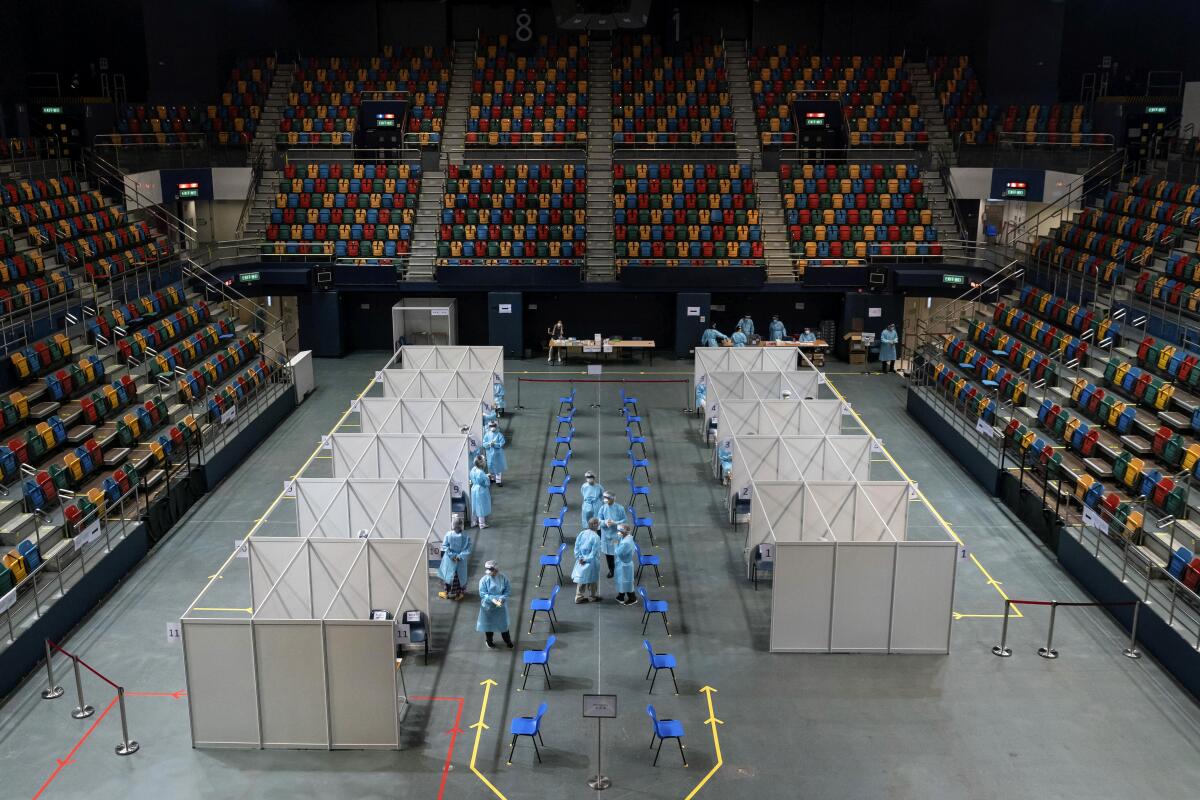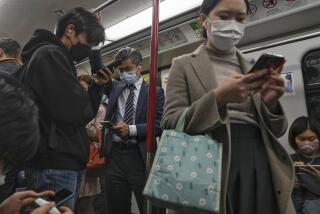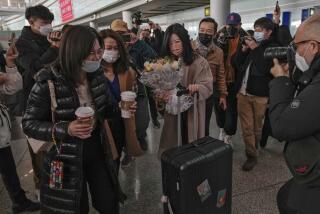Hong Kong begins mass coronavirus testing, but some are wary

- Share via
HONG KONG — Hong Kong tested thousands of people for the coronavirus Tuesday at the start of a mass testing effort that’s become another political point of contention over Chinese rule of the semiautonomous city.
People stood in line at some of the more than 100 testing centers, but many residents are distrustful of the resources and staff being provided by China’s central government for the voluntary program, and some have expressed fear that DNA could be collected along with test specimens.
The Hong Kong government has dismissed such concerns. Leader Carrie Lam urged the public to see the program in a fair and objective light and appealed to critics to stop discouraging people from being tested, as participation is crucial to the program’s success.
Priscilla Pun, a sales manager, got tested to give herself peace of mind. “I don’t see any reason not to do it, and this way I can let my family in Canada know that I am safe,” said Pun, who was tested at a center in the eastern neighborhood of Quarry Bay.
Giselle Ming said she decided to take part to support the Hong Kong government’s initiative even though she was not worried that she herself might be a carrier of the virus. “In this bad situation of the coronavirus, I hope I can do something to help the society,” she said.
But some pro-democracy activists, such as Joshua Wong, have publicly opposed the program. Wong called for a boycott, citing Swedish media reports that some test kits being used had high rates of false-positive results.
The man’s second SARS-CoV-2 infection was detected in an airport screening as he returned to Hong Kong from Europe.
Lam noted that false positives can happen, but she insisted that the tests used in the program had passed quality-assurance procedures. She said that over 10,000 people, including most of Hong Kong’s government ministers, had been tested by Tuesday morning.
More than 500,000 people in the city of 7.5 million have signed up in advance for the program, which will last at least a week. It is aimed at identifying silent carriers of the virus — those without symptoms — who could be spreading the disease.
The government expects that 5 million people — two-thirds of the city’s population — will take part in the program, which could be extended to two weeks depending on demand.
Hong Kong’s worst outbreak in early July was blamed in part on an exemption from quarantine requirements for airline staff, truck drivers from mainland China and sailors on cargo ships.
At its peak, Hong Kong recorded more than 100 locally transmitted cases a day, after going weeks without any in June.
The outbreak has slowed, with the city reporting just nine cases Monday, the first time in two weeks that daily infections had fallen to single digits. However, the government and some experts say that community testing can help detect asymptomatic carriers to further stop the spread of the virus.
More to Read
Sign up for Essential California
The most important California stories and recommendations in your inbox every morning.
You may occasionally receive promotional content from the Los Angeles Times.













